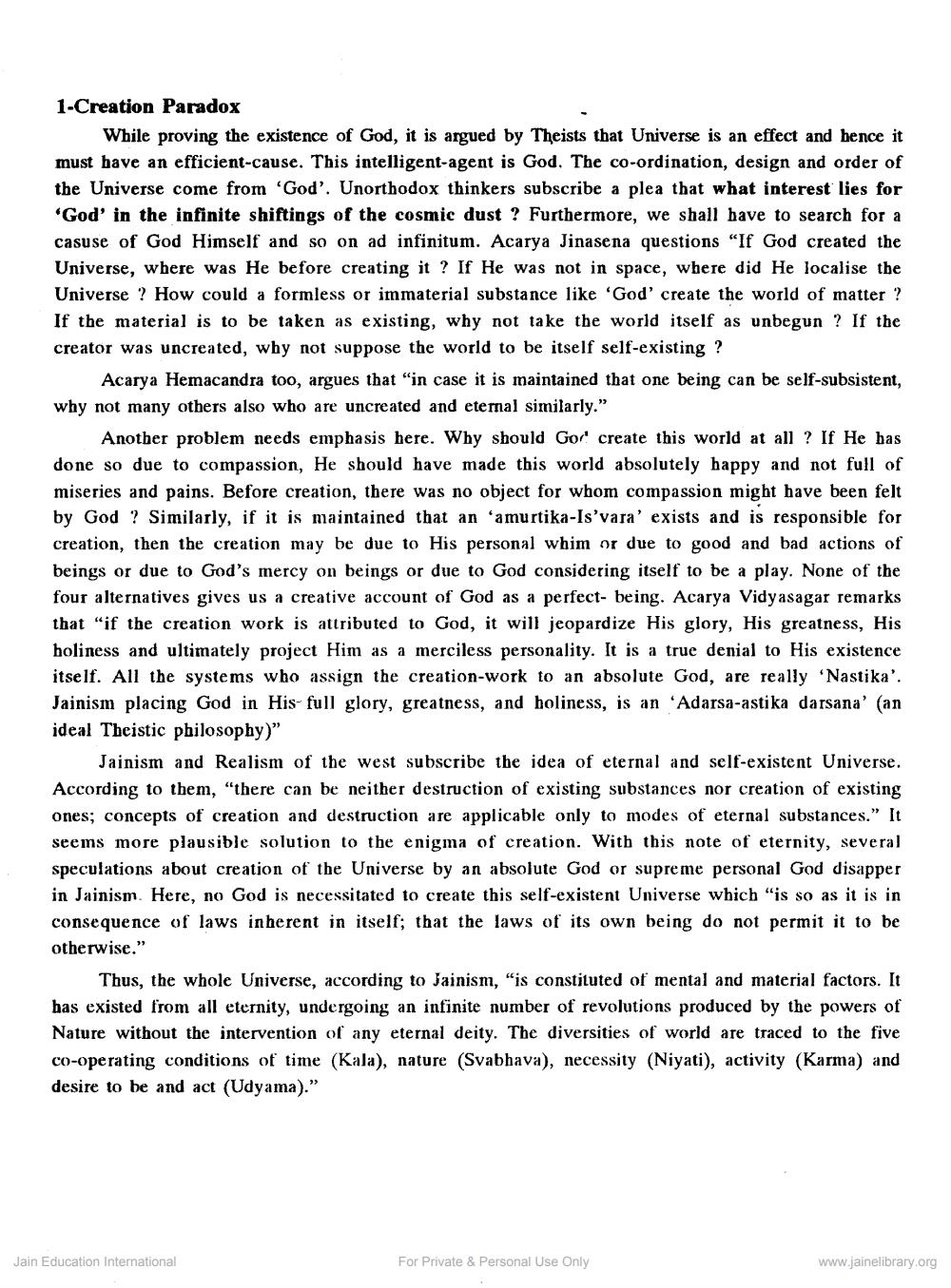________________
1-Creation Paradox
While proving the existence of God, it is argued by Theists that Universe is an effect and hence it must have an efficient-cause. This intelligent-agent is God. The co-ordination, design and order of the Universe come from 'God'. Unorthodox thinkers subscribe a plea that what interest lies for 'God' in the infinite shiftings of the cosmic dust ? Furthermore, we shall have to search for a casuse of God Himself and so on ad infinitum. Acarya Jinasena questions "If God created the Universe, where was He before creating it ? If He was not in space, where did He localise the Universe ? How could a formless or immaterial substance like 'God' create the world of matter ? If the material is to be taken as existing, why not take the world itself as unbegun ? If the creator was uncreated, why not suppose the world to be itself self-existing ?
Acarya Hemacandra too, argues that “in case it is maintained that one being can be self-subsistent, why not many others also who are uncreated and etemal similarly."
Another problem needs emphasis here. Why should Gor! create this world at all ? If He has done so due to compassion, He should have made this world absolutely happy and not full of miseries and pains. Before creation, there was no object for whom compassion might have been felt by God ? Similarly, if it is maintained that an 'amurtika-Is'vara' exists and is responsible for creation, then the creation may be due to His personal whim or due to good and bad actions of beings or due to God's mercy on beings or due to God considering itself to be a play. None of the four alternatives gives us a creative account of God as a perfect- being. Acarya Vidyasagar remarks that "if the creation work is attributed to God, it will jeopardize His glory, His greatness, His holiness and ultimately project Him as a merciless personality. It is a true denial to His existence itself. All the systems who assign the creation-work to an absolute God, are really 'Nastika'. Jainism placing God in His- full glory, greatness, and holiness, is an 'Adarsa-astika darsana' (an ideal Theistic philosophy)"
Jainism and Realism of the west subscribe the idea of eternal and self-existent Universe. According to them, "there can be neither destruction of existing substances nor creation of existing ones; concepts of creation and destruction are applicable only to modes of eternal substances." It seems more plausible solution to the enigma of creation. With this note of eternity, several speculations about creation of the Universe by an absolute God or supreme personal God disapper in Jainism. Here, no God is necessitated to create this self-existent Universe which "is so as it is in consequence of laws inherent in itself; that the laws of its own being do not permit it to be otherwise."
Thus, the whole Universe, according to Jainism, "is constituted of mental and material factors. It has existed from all eternity, undergoing an infinite number of revolutions produced by the powers of Nature without the intervention of any eternal deity. The diversities of world are traced to the five co-operating conditions of time (Kala), nature (Svabhava), necessity (Niyati), activity (Karma) and desire to be and act (Udyama)."
Jain Education International
For Private & Personal Use Only
www.jainelibrary.org




